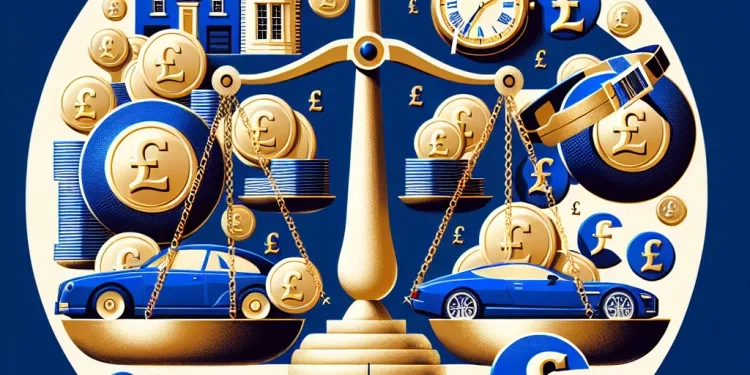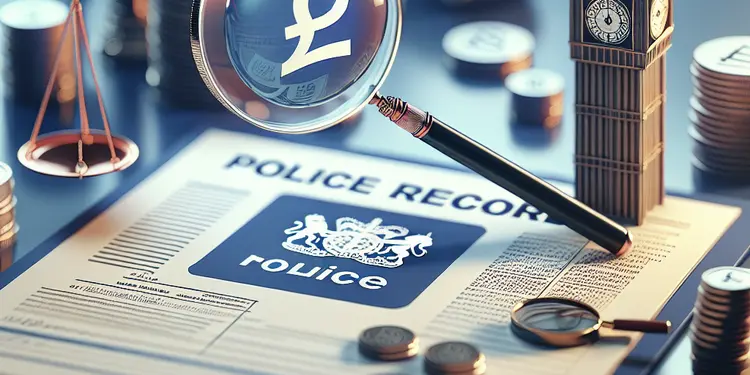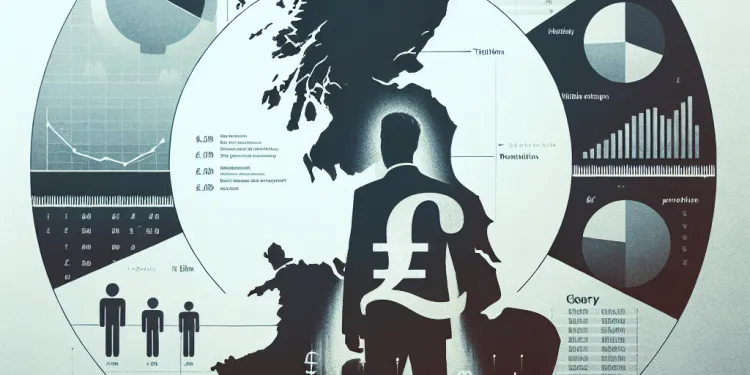
Find Help
More Items From Ergsy search
-

How do governments ensure compliance with wealth tax laws?
Relevance: 100%
-

What are the administrative costs of a wealth tax?
Relevance: 55%
-

What is a Wealth Tax?
Relevance: 54%
-

Could a wealth tax encourage tax avoidance?
Relevance: 54%
-

What are the challenges of implementing a wealth tax?
Relevance: 51%
-

How is a wealth tax typically calculated?
Relevance: 50%
-

What is the objective of a wealth tax?
Relevance: 50%
-

What is the wealth tax in the UK?
Relevance: 49%
-

Who is typically subject to a wealth tax?
Relevance: 49%
-

How do economists view the impact of wealth taxes?
Relevance: 49%
-

What is the Wealth Tax in the UK?
Relevance: 49%
-

Would a wealth tax apply to foreign assets?
Relevance: 48%
-

Why doesn't the UK have a wealth tax?
Relevance: 48%
-

Would a wealth tax replace other taxes in the UK?
Relevance: 48%
-

Could a wealth tax affect economic growth in the UK?
Relevance: 48%
-

Can a wealth tax be levied annually?
Relevance: 47%
-

How might a wealth tax impact inequality in the UK?
Relevance: 47%
-

Has the UK ever had a wealth tax?
Relevance: 46%
-

What are common arguments in favor of a wealth tax?
Relevance: 46%
-

How do other countries implement a wealth tax?
Relevance: 46%
-

What arguments are made for a wealth tax in the UK?
Relevance: 46%
-

Can a wealth tax impact economic behavior?
Relevance: 45%
-

Are there any countries currently implementing a wealth tax?
Relevance: 45%
-

Is real estate included in wealth tax calculations?
Relevance: 45%
-

How does a wealth tax differ from an income tax?
Relevance: 45%
-

Has any political party in the UK supported a wealth tax?
Relevance: 42%
-

How might a wealth tax affect wealthy individuals?
Relevance: 41%
-

How does council tax relate to wealth in the UK?
Relevance: 39%
-

What taxes in the UK target wealth?
Relevance: 38%
-

Does the HMRC Employer Bulletin provide guidance on compliance?
Relevance: 38%
-

What laws govern my right to access police records?
Relevance: 34%
-

Are there specific laws governing SEND in schools?
Relevance: 33%
-

Do wealth taxes differ between countries?
Relevance: 33%
-

Are there alternatives to a wealth tax for addressing inequality?
Relevance: 33%
-

What are common criticisms of a wealth tax?
Relevance: 30%
-

Do public opinion polls support a wealth tax in the UK?
Relevance: 30%
-

What exemptions are commonly associated with wealth taxes?
Relevance: 29%
-

What Happens to Tax Debt After Death? (UK Laws)
Relevance: 29%
-

Has the idea of a wealth tax been discussed in political debates?
Relevance: 28%
-

Is tax evasion an offence of dishonesty?
Relevance: 28%
Introduction to Wealth Tax Laws
Wealth taxes are imposed on individuals' net wealth, which typically includes cash, real estate, and investments, minus liabilities. Governments implement these taxes to reduce wealth inequality and generate public revenue. Compliance with these laws is essential to ensure fairness and the efficient collection of taxes.
Monitoring and Reporting
Governments enforce compliance with wealth tax laws through stringent monitoring and reporting requirements. In the UK, the government mandates the declaration of assets and liabilities to determine net wealth accurately. The HM Revenue and Customs (HMRC) plays a crucial role in monitoring adherence to these regulations. They require taxpayers to file comprehensive tax returns and provide documentation that supports their declarations.
Audit and Inspection
To ensure compliance, HMRC conducts audits and inspections of taxpayers' financial records. These audits involve a thorough examination of reported wealth and the evaluation of any discrepancies. The audits serve as a deterrent for potential non-compliance by increasing the likelihood of detection. HMRC uses sophisticated data analytics to identify suspicious patterns and high-risk taxpayers, improving the efficiency of these audits.
Penalties and Legal Enforcements
The UK government imposes penalties to enforce compliance and discourage evasion. Penalties for non-compliance with wealth tax laws can include substantial fines, legal action, and in severe cases, imprisonment. The severity of the penalty often depends on the extent of the violation and whether it was intentional or due to negligence. The government’s firm stance on penalties serves to emphasize the importance of compliance.
International Cooperation
With the globalization of wealth, governments have increased international cooperation to enforce wealth tax compliance. The UK participates in the Common Reporting Standard (CRS), an international framework that facilitates the exchange of financial information between countries. This cooperative approach helps UK authorities track offshore assets and ensure individuals pay the appropriate taxes on their global wealth. Such measures are crucial in closing loopholes that allow individuals to hide wealth abroad.
Public Awareness and Support
Public awareness campaigns play a significant role in ensuring compliance. The UK government conducts educational initiatives to inform taxpayers about their obligations and the importance of compliance with wealth tax laws. By increasing awareness, the government aims to foster voluntary compliance and create a culture of transparency and responsibility among citizens.
Conclusion
Ensuring compliance with wealth tax laws is a multifaceted challenge for governments. In the UK, HMRC employs a combination of monitoring, penalties, auditing, and international cooperation to enforce these laws effectively. Through public education and legal enforcement, the government seeks to maintain a fair taxation system and mitigate wealth inequality.
Introduction to Wealth Tax Laws
Wealth tax is money you pay on what you own. This includes cash, houses, and investments, but you subtract what you owe. The government uses this tax to make sure everyone is equal and to get money for public services. It is important to follow these rules so everyone pays their fair share.
Monitoring and Reporting
The government checks to make sure people follow the wealth tax rules. In the UK, you must tell the government about what you own and what you owe. This helps calculate your wealth correctly. HM Revenue and Customs (HMRC) makes sure people do this correctly. They ask people to fill out forms and show proof of their wealth.
Audit and Inspection
HMRC checks people's money records to make sure everything is correct. They look at what you say you own and see if it matches. These checks help stop people from not paying their taxes on purpose. HMRC is very good at spotting things that look wrong. This makes people more careful to be honest.
Penalties and Legal Enforcements
If you do not follow the rules, you might have to pay a lot of money or go to court. Sometimes, if it is very bad, you could even go to jail. The punishment depends on how bad the mistake is and if it was done on purpose. The government is serious about this to make sure people follow the tax laws.
International Cooperation
Many people have money in different countries. The UK works with other countries to make sure people pay tax on all their money everywhere. They have a system called the Common Reporting Standard (CRS) which helps them share information about people's money. This helps find hidden money and stops people from cheating on their taxes.
Public Awareness and Support
The government talks to people about wealth tax so everyone knows what they should do. They teach people why paying taxes is important. By helping people understand, the government hopes more people will follow the rules and be honest about their finances.
Conclusion
Making sure people pay their wealth taxes is a big job. In the UK, HMRC uses checks, fines, and help from other countries to make sure everyone follows the rules. By teaching people and making sure the laws are followed, the government works to be fair and help make life better for everyone.
Frequently Asked Questions
What mechanisms do governments use to track wealth for tax purposes?
Governments use various mechanisms, including financial disclosures, audits, and third-party reporting systems, to track wealth and ensure accurate tax reporting.
How do authorities verify the value of assets declared by taxpayers?
Authorities may use professional appraisals, reference to market values, and financial statements to verify the value of declared assets.
What role do financial institutions play in ensuring compliance with wealth tax laws?
Financial institutions often have reporting obligations, such as sharing account information and transaction details, to help tax authorities track and verify wealth.
How can technology assist in the enforcement of wealth tax laws?
Technology, such as data analytics and blockchain, can improve transparency, track assets, and detect discrepancies in reported wealth.
What penalties are imposed for non-compliance with wealth tax laws?
Penalties can include fines, interest on unpaid taxes, and in severe cases, criminal charges or imprisonment.
To what extent do international agreements facilitate wealth tax compliance?
International agreements, such as automatic exchange of information, help countries identify assets held abroad and ensure compliance with wealth tax laws.
What are some challenges governments face in implementing wealth tax laws?
Challenges include accurately valuing diverse assets, detecting hidden wealth, and ensuring compliance across international borders.
How do governments deal with wealth hidden in offshore accounts?
Governments may use treaties, data sharing, and legal actions to access information on offshore accounts and ensure compliance.
What is the role of tax audits in enforcing wealth tax laws?
Tax audits help identify discrepancies in reported wealth, verify asset values, and encourage accurate self-reporting by taxpayers.
How do self-reporting requirements impact wealth tax compliance?
Self-reporting requirements place the responsibility on taxpayers to accurately disclose their wealth, with regular audits ensuring compliance.
What measures are in place to prevent wealth tax evasion?
Measures include stricter reporting requirements, enhanced audits, whistleblower programs, and international cooperation to track assets.
How does the exchange of information between countries aid compliance?
Exchange of information allows countries to detect discrepancies in reported wealth, track offshore holdings, and enforce wealth tax laws more effectively.
What are common avoidance schemes for wealth taxes and how are they countered?
Common schemes include asset underreporting and use of shell companies; governments counter them with audits, legal maneuvers, and international cooperation.
How do wealth tax laws differ across jurisdictions and impact compliance?
Differences in wealth tax laws, such as valuation methods and tax rates, can impact compliance and require alignment for international consistency.
Do governments provide incentives for compliance with wealth tax laws?
Some governments offer incentives such as lower penalties or amnesty programs to encourage taxpayers to declare their wealth and comply with tax laws.
What public campaigns exist to promote compliance with wealth tax laws?
Public campaigns often focus on educating taxpayers about their obligations, the importance of compliance, and the consequences of evasion.
How do wealth tax laws address changes in asset value over time?
Wealth tax laws may require periodic reevaluation of assets to reflect current market values and any significant changes in wealth.
What training is provided to tax officials to enforce wealth tax laws?
Tax officials receive training on asset valuation, auditing techniques, and international regulations to effectively enforce wealth tax laws.
How is transparency promoted in wealth reporting for tax purposes?
Transparency is promoted through mandatory disclosures, public registries, and strict reporting standards to ensure accountability in wealth reporting.
What legal frameworks support the enforcement of wealth tax laws?
Legal frameworks include tax laws, international treaties, and enforcement mechanisms to ensure compliance and address tax evasion.
How do governments check money for taxes?
Governments use ways to see how much money people have. This helps them ask for the right amount of taxes. Here are some tools and tips that can help:
- Use pictures or videos that explain how taxes work.
- Read together with a friend or family member.
- Ask someone to explain words you don't understand.
Governments have different ways to keep track of money. They use things like money reports, checking accounts, and asking other people to report what they see. This helps make sure everyone pays the right amount of taxes.
How do authorities check how much people's things are worth?
The government checks what things are worth by:
- Asking experts to say how much they think things are worth.
- Looking at what similar things are being sold for in the market.
- Checking money records to see the value of things.
If you find this hard, you can ask someone to help read it with you. You can also try using a text-to-speech tool to listen to the words.
How do banks and money companies help with following wealth tax rules?
Banks and other money places have to tell where money is and where it goes. This helps tax people know how much money everyone has.
How can technology help with wealth tax laws?
Technology can make it easier to check if people pay their wealth taxes. Here are some ways it can help:
- Computers: Computers can store lots of information about how much money or property people have.
- Software programs: Special programs can quickly check if someone has paid the right amount of tax.
- Internet: People can use the internet to send their tax forms. This can be faster and easier.
- Help from experts: Experts can use technology to find out if anyone is not paying enough tax.
If you want to know more about wealth taxes, it's a good idea to ask someone who knows about taxes, like a parent or teacher. They can explain it in a way that's easy to understand.
Technology can help us see things more clearly. Tools like data analytics and blockchain can help us keep track of what we own and find any mistakes in what people say they have.
If you find reading tricky, you can use tools like audiobooks or text-to-speech software to listen to this text. You can also use apps that read text out loud to you.
What happens if you don't follow wealth tax rules?
If you don't pay your taxes, you might have to pay extra money called a fine. You might also have to pay more money because of interest. In really bad situations, you could even be charged with a crime or go to jail.
Do international agreements help people pay wealth taxes?
Here is a simple question:
- Do countries working together make it easier for people to pay taxes on their money?
Tools and tips to help understand:
- Use pictures or diagrams to show how countries can work together.
- Ask someone to explain the question with different words.
- Try to write down what you think the question means.
Countries have agreements to share information. These agreements help them find out about money or things people own in other countries. This way, everyone pays the right taxes on their wealth.
What problems do governments have with wealth tax laws?
Here are some problems governments have:
- It's hard to find out exactly how much money rich people have.
- Rich people might move their money to other countries to pay less tax.
- It can cost a lot of money to collect the tax.
- Some people might not agree with the tax and think it is unfair.
Here are some ways to help understand:
- Using simple and clear words can help.
- Pictures or diagrams might help show how taxes work.
- Talking to someone who is good with money could help, too.
There are some problems that might happen. It's hard to know how much different things are worth. It can be tricky to find money or things that people might try to hide. Also, there are strict rules to follow when dealing with money from other countries.
Here are some tools to help understand this better:
- Speak to an Expert: You can talk to someone who knows how to deal with money matters like these.
- Use Simple Calculators: There are easy online tools to help you figure out how much things are worth.
- Step-by-Step Guides: Find simple guides that show you how to follow the rules.
How do governments find money hidden in other countries?
Governments try to find money that is hidden in banks in other countries.
Here is how they do it:
- They talk to other countries and share information.
- They use computers to look for clues.
- They ask experts to help find the money.
Helpful tools and tips:
- Use pictures or videos to learn more.
- Ask questions if you don't understand.
- Work with a friend to share ideas.
Governments can use agreements called treaties to get information about money in other countries. They can also share data with each other and use laws to make sure people follow the rules about money.
How do tax checks help make sure people pay wealth taxes?
Tax checks are when the government looks at money records to see if people pay the right taxes.
These checks help make sure everyone pays their fair share.
People can use tools like counting apps or ask someone they trust to help them understand money better.
Tax checks help find mistakes in money reports, check what things are worth, and make sure people tell the truth about their money.
How do self-reporting rules affect paying wealth tax?
People need to tell the tax office how much money they have. This is called self-reporting. The tax office sometimes checks to make sure everything is correct. This is called an audit.
How do we stop people from not paying the wealth tax?
These actions include:
- Making people report things more often
- Checking things more carefully
- Helping people tell if something is wrong
- Working with other countries to find out where money and things are
How Does Sharing Information Between Countries Help Them Follow Rules?
Sharing information helps countries find out if there are mistakes in what people say about their money. It also helps them see money kept in other countries and makes sure people pay the right amount of wealth tax.
How do rich people try to not pay wealth taxes and what is done to stop this?
There are some tricks people use to hide money. They might say they have less money than they really do. Or they might use fake companies that don't do anything. This way, they pay less tax.
To stop this, governments do checks to see if people are telling the truth. They use laws to help them find out more. Countries also work together to catch these tricks.
Some helpful tools are using pictures or videos to see how these tricks work. Talking with someone who knows about money, like a teacher, can also help.
How are wealth tax rules different in various places, and how does this affect following the rules?
Rules about wealth tax can be different in each country or place. Some places may have a wealth tax, while others do not.
If the rules are different, it can make it hard to know what to do to follow the rules.
To understand better, you can:
- Ask a tax helper who knows the rules.
- Use an online tool to check the rules in each place.
- Read simple guides about wealth tax rules.
Wealth tax rules in different places can be different. These rules tell us how to figure out how much money something is worth and how much tax to pay.
These differences can make following the rules hard. It’s important to make these rules match up so things are fair around the world.
To help understand better, you can use pictures or videos. Reading with someone else can also help.
Do governments give rewards for following wealth tax rules?
This question is asking if governments offer any prizes or benefits for people who follow the laws about paying taxes on their wealth. These are the rules that tell people how much money they need to give to the government based on what they own.
Here are some ways to understand it better:
- Think of "wealth tax" as a tool to help everyone by sharing money evenly.
- "Compliance" means following the rules.
- Governments might give rewards like money back, or other advantages, to people who follow these rules.
If this is hard to understand, ask someone you trust to explain it, or use a simple online dictionary for help.
Some governments give rewards like smaller punishments or forgiveness programs to make people tell the truth about their money and follow tax rules.
What are Some Ways People Learn About Following Wealth Tax Laws?
There are some plans to help people understand and follow wealth tax laws. These plans help share important information with everyone.
Here are a few ways people learn about wealth tax:
- Posters and Ads: You might see posters or ads that explain wealth tax rules. They use simple words and pictures.
- Social Media: People share messages and videos online to help others learn about wealth tax.
- Workshops: Some places have meetings where you can learn about wealth tax and ask questions.
These plans are made to help everyone understand and follow the rules.
Public campaigns help people understand their tax duties. They teach why it’s important to pay taxes and what happens if you don’t.
How do wealth tax laws deal with changes in what things are worth over time?
Here is how wealth tax laws work:
- A wealth tax is money some people must pay on their valuable things.
- These things can be houses, cars, or other things they own.
- The value of these things can change. Sometimes they are worth more, and sometimes less.
- Wealth tax laws have rules for when the value goes up or down.
- Tools like calculators can help understand these rules.
- Ask an adult or look online for help if you need it.
Laws about wealth tax mean you need to check how much your things are worth from time to time. This is to make sure their value is up-to-date with the market.
What training do tax workers get to check if people pay wealth tax?
Tax workers learn how to check the value of things people own. They also learn how to look at people's money in a fair way. They learn about rules from other countries to make sure people pay the right amount of tax.
How do we make sure everyone tells the truth about money for taxes?
We make things clear by following these rules:
1. We must share important information.
2. We keep lists that everyone can see.
3. We have rules to report money clearly.
This helps us be honest and responsible about money.
What rules help make sure people pay taxes on their money?
Here are some ways to understand and remember:
- Rules: These are the laws that say people must pay taxes on their money and valuable things.
- Helpers: Sometimes, people like lawyers can help us know what these rules mean.
- Papers and Books: There are books or websites that tell us more about tax rules.
If you need help, you can:
- Ask a trusted adult to explain the rules.
- Use simple word tools, like a dictionary for kids, to understand hard words.
- Find videos that explain taxes in an easy way.
Legal rules are like a set of important instructions. They include tax rules, agreements between countries, and ways to make sure people follow the rules. These instructions help stop people from not paying their taxes.
Useful Links
Have you found an error, or do you have a link or some information you would like to share? Please let us know using the form below.
-->
This website offers general information and is not a substitute for professional advice.
Always seek guidance from qualified professionals.
If you have any medical concerns or need urgent help, contact a healthcare professional or emergency services immediately.
Some of this content was generated with AI assistance. We’ve done our best to keep it accurate, helpful, and human-friendly.
- Ergsy carfully checks the information in the videos we provide here.
- Videos shown by Youtube after a video has completed, have NOT been reviewed by ERGSY.
- To view, click the arrow in centre of video.
- Most of the videos you find here will have subtitles and/or closed captions available.
- You may need to turn these on, and choose your preferred language.
- Go to the video you'd like to watch.
- If closed captions (CC) are available, settings will be visible on the bottom right of the video player.
- To turn on Captions, click settings .
- To turn off Captions, click settings again.
More Items From Ergsy search
-

How do governments ensure compliance with wealth tax laws?
Relevance: 100%
-

What are the administrative costs of a wealth tax?
Relevance: 55%
-

What is a Wealth Tax?
Relevance: 54%
-

Could a wealth tax encourage tax avoidance?
Relevance: 54%
-

What are the challenges of implementing a wealth tax?
Relevance: 51%
-

How is a wealth tax typically calculated?
Relevance: 50%
-

What is the objective of a wealth tax?
Relevance: 50%
-

What is the wealth tax in the UK?
Relevance: 49%
-

Who is typically subject to a wealth tax?
Relevance: 49%
-

How do economists view the impact of wealth taxes?
Relevance: 49%
-

What is the Wealth Tax in the UK?
Relevance: 49%
-

Would a wealth tax apply to foreign assets?
Relevance: 48%
-

Why doesn't the UK have a wealth tax?
Relevance: 48%
-

Would a wealth tax replace other taxes in the UK?
Relevance: 48%
-

Could a wealth tax affect economic growth in the UK?
Relevance: 48%
-

Can a wealth tax be levied annually?
Relevance: 47%
-

How might a wealth tax impact inequality in the UK?
Relevance: 47%
-

Has the UK ever had a wealth tax?
Relevance: 46%
-

What are common arguments in favor of a wealth tax?
Relevance: 46%
-

How do other countries implement a wealth tax?
Relevance: 46%
-

What arguments are made for a wealth tax in the UK?
Relevance: 46%
-

Can a wealth tax impact economic behavior?
Relevance: 45%
-

Are there any countries currently implementing a wealth tax?
Relevance: 45%
-

Is real estate included in wealth tax calculations?
Relevance: 45%
-

How does a wealth tax differ from an income tax?
Relevance: 45%
-

Has any political party in the UK supported a wealth tax?
Relevance: 42%
-

How might a wealth tax affect wealthy individuals?
Relevance: 41%
-

How does council tax relate to wealth in the UK?
Relevance: 39%
-

What taxes in the UK target wealth?
Relevance: 38%
-

Does the HMRC Employer Bulletin provide guidance on compliance?
Relevance: 38%
-

What laws govern my right to access police records?
Relevance: 34%
-

Are there specific laws governing SEND in schools?
Relevance: 33%
-

Do wealth taxes differ between countries?
Relevance: 33%
-

Are there alternatives to a wealth tax for addressing inequality?
Relevance: 33%
-

What are common criticisms of a wealth tax?
Relevance: 30%
-

Do public opinion polls support a wealth tax in the UK?
Relevance: 30%
-

What exemptions are commonly associated with wealth taxes?
Relevance: 29%
-

What Happens to Tax Debt After Death? (UK Laws)
Relevance: 29%
-

Has the idea of a wealth tax been discussed in political debates?
Relevance: 28%
-

Is tax evasion an offence of dishonesty?
Relevance: 28%


